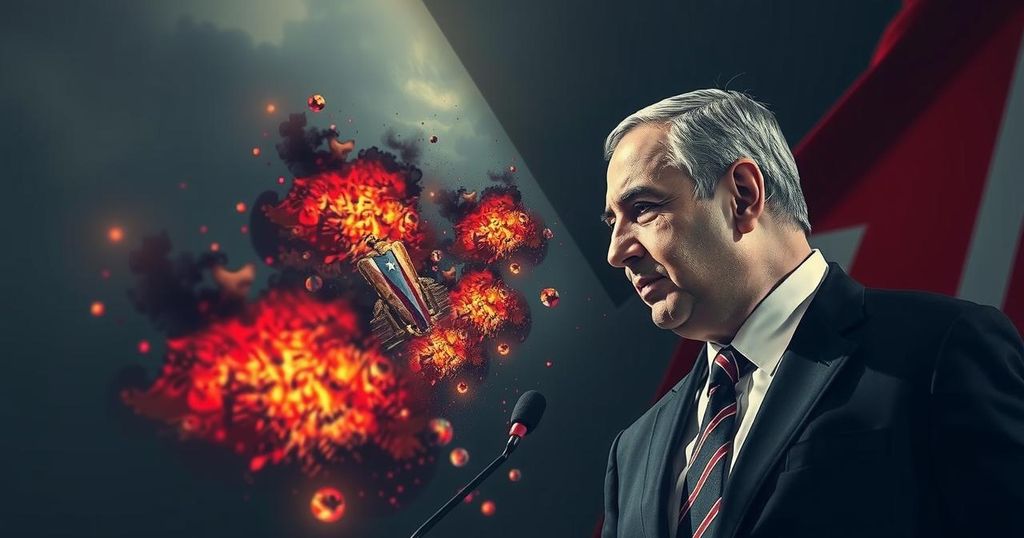Ongoing Gaza Conflict Highlights Hostage Crisis Amidst Political Dynamics

The ongoing Gaza conflict shows no signs of resolution, with Israeli Prime Minister Netanyahu failing to end the hostilities or secure hostage returns. Hamas’s claims regarding the death of a hostage highlight the humanitarian crisis, as geopolitical factors, including U.S. leadership, may influence future developments in the region.
The persistent conflict in Gaza, particularly in light of Israel’s actions and the situation involving hostages, remains a focal point in the region. Despite recent developments leading to a ceasefire with Lebanon, Israeli Prime Minister Benjamin Netanyahu has not taken steps to end the war in Gaza or secure the return of hostages. The backdrop of increasing tensions is bolstered by Hamas’s claim of a hostage’s death due to Israeli bombing, although the status of another individual remains uncertain, drawing concern from various human rights advocates.
Compounding the complexity of this situation are emerging geopolitical dynamics, particularly with Donald Trump’s presidency in the United States. His administration’s potential shift towards de-escalation has created a tense atmosphere where actions in Lebanon may influence the ongoing crisis in Gaza. As regional conditions evolve, particularly with Hezbollah distancing itself from Gaza, there may be an opening for diplomatic efforts focused on conflict resolution in the Strip as well.
The atmosphere surrounding the hostage situation is growing increasingly tenuous. Hamas recently released a statement alleging that an Israeli airstrike resulted in the death of one of their captives, contributing to the urgency surrounding negotiations. As reported, a blurred image purportedly depicting the deceased hostage was circulated by Hamas. However, authentication of the claim remains unconfirmed, raising questions about the credibility and motivations of such statements amidst the ongoing conflict.
The intertwining narratives of warfare and hostage negotiations continue to present formidable challenges as stakeholders grapple with intersecting interests and humanitarian concerns. The dire situation encapsulates the broader tensions in the Middle East and the complex interplay of political motivations both regionally and internationally. Until concrete actions are undertaken to address these crises, the human cost of this protracted conflict remains alarmingly high.
An examination of this conflict illustrates the precarious balance between military actions and diplomatic negotiations. As entities like Hamas leverage the situation to bolster their narratives, the international community watches closely, urging for resolutions that can mitigate the suffering in the region. Future developments will be essential to discern whether the potential diplomatic openings can lead to a meaningful cessation of hostilities and the safe return of hostages.
The Israel-Gaza conflict is a deeply entrenched issue characterized by cycles of violence, with military actions often leading to significant humanitarian crises. The recent hostilities have attracted global condemnation and calls for restraint. The situation has been exacerbated by various factions, including Hamas and Hezbollah, whose roles in escalating tensions complicate any potential resolutions. Furthermore, the political landscape in the United States, especially under Donald Trump’s administration, has introduced new dynamics that could affect regional stability and conflict resolution efforts.
In summary, the ongoing conflict in Gaza serves as a stark reminder of the complexities involved in the Israeli-Palestinian situation. The allegations regarding hostages and recent military actions underscore the urgent need for diplomatic dialogue and humanitarian considerations. With external influences such as the United States and regional actors like Hezbollah, the trajectory of this conflict remains uncertain, stressing the importance of vigilant international engagement to foster peace and stability.
Original Source: www.haaretz.com








